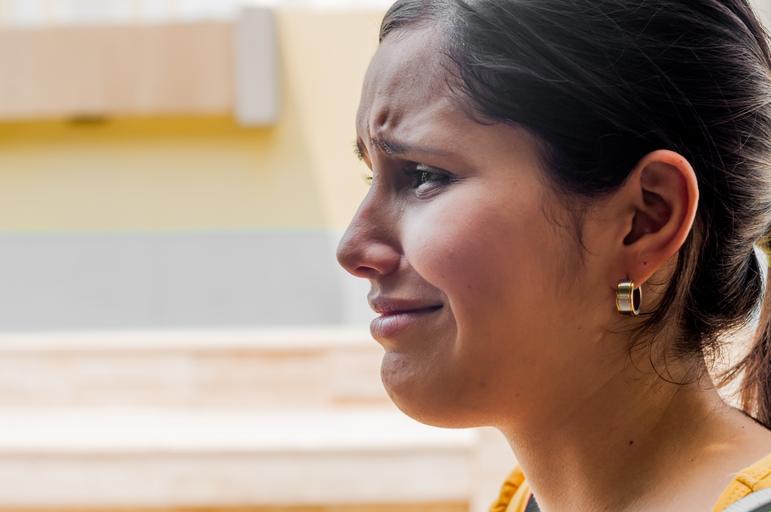
What’s Happening: Can A Toothache Cause Ear Pain?
Can a toothache cause ear pain or headache? People often ask this question of their local dentist or online. It just seems that a toothache comes along at the worst time. You’re ready to go on a trip or worse yet, you’re on a trip and a toothache starts. Toothache pain can ruin a vacation and will definitely hijack a good night’s sleep. The reason is simple. The teeth in the mouth have major nerves that connect the mouth to various parts of the face, head, and brain. When the nerves surrounding a tooth gets irritated, the result is pain. Toothaches are also notorious for causing ear pain. So, can a toothache cause ear pain and why does this happen?
Where Did This Come From?
There are many factors that cause toothaches, ranging from tooth decay and gum diseases to just brushing or flossing abnormally. Here are a few major factors that cause toothaches:
• Tooth Decay
The most common factor that causes toothache is… wait for it… Tooth decay! It’s responsible for most toothache cases today. It’s not usually a pleasant topic to discuss with people but it’s just the plain truth because it’s a threat to all of us. If you have pain in your tooth and its surrounding area, it could be a sign of early tooth decay. Once the internal layer of the tooth is compromised, the pain becomes worse and may lead to an abscess. You shouldn’t for pain to see your dentist for an exam to detect cavities.
• Tooth Cracks
Cracked or chipped teeth occur in different ways. Normal chewing on hard foods, trauma, and grinding, people can end up with tooth fractures. In most cases, when a tooth cracks, only the surface of the tooth is fractured. When left untreated, the fracture can progress till it reaches the center of the tooth. Toothache in a cracked or chipped tooth means the center of the tooth has been affected and the nerves in that tooth are compromised. You really shouldn’t let the condition of a cracked tooth deteriorate before you consult your dentist.
• Gum Infections
With symptoms including red, bleeding gums, toothaches and a general dull painful sensation in the mouth, gum infections are really hard to miss. Gum infections should not be ignored, as they can lead to more dental complications that may require surgical procedures. Consult a dentist immediately.
• Teeth Grinding or Bruxism
Grinding your teeth and clenching your jaw puts you at risk of getting a toothache and ear pain as well as pain in other related muscles. This is because teeth grinding can cause pain in the jaw bones, headaches, and even cracked teeth. Most people grind their teeth intentionally when tired or stressed. Others do it unconsciously in their sleep, leading to painful mornings and toothaches. Teeth grinding can be treated by wearing a mouthguard while sleeping to prevent such occurrences.
• Abnormal Brushing or Flossing
Our teeth are sensitive to pressure, and if too much pressure is used when brushing or flossing, it can lead to toothaches in the mouth. Using too much force when brushing is also harmful to the gums. it can cause irritation and injuries to the gums and lead to unstable teeth, thereby causing more pain. To avoid this mistake, it is best to consult a dentist about the proper way to brush. Also, avoid hard toothbrushes.
Other factors that can cause toothaches include sensitive teeth, tooth abscess and sinus infections.
What Can I Do To Prevent Toothaches?
There are many home remedies you can use to prevent toothache and gum infections, and they include:
• Brush regularly. The best way to prevent toothaches or dental complications is to brush your teeth regularly. Brushing twice daily with a soft-bristle toothbrush can help you maintain good oral health and keep your mouth free of infection-causing germs.
• Drink fluoridated water. Since tooth decay is a major factor that causes toothaches, it’s a great idea to drink fluoridated water. Fluoride is good for the teeth and can help you prevent tooth decay.
• Avoid smoking. Smoking has a way of compromising the strength and health of your teeth. It’s a good line of action to stay away from anything that can put you at risk of a gum infection or worse.
• Protect your teeth at play: To avoid teeth cracks and fractures, always wear a mouthguard and appropriate protection when playing aggressive, contact sports. Using Dental protection can save you a lot of pain and unnecessary expenditure in case of an accident.
• Eat a balanced diet. Eating a balanced diet rich in protein, fruits and vegetables. Consumption of sugar-rich foods and drinks should be minimized as they can cause cavities and compromise the strength of your teeth and gums.
• Keep regular appointments with your dentist. If you’re wondering, “Can a toothache cause ear pain,” it’s best to see a dentist to check out the possibility. Your dentist is in a better position to assess the condition of your teeth and general oral health. If he/she discovers an issue, they can arrange a dental cleaning or appropriate procedure to nip the issue in the bud.
Remember, once you start feeling toothache and associated pain, heed the warning and consult your dentist. You may want to ask them, “Can a toothache cause ear pain, face pain, or headache?” There are many recommended procedures to help you relieve the pain and make you feel better.
We Can Help
Many people wonder how they can find the best dental info and best dentists articles online. The reason many people are looking for local dental information online is fairly simple. For one, they want to know what is going on in their mouth. For instance, if your dentist tells you that you need a root canal on your back molar and need to see an endodontist, you want to know more. You may be curious to find out what is a root canal and who are local endodontists? What does an endodontist do?
At Dental Chat, we help cut through the confusion and provide accurate, valuable blogs on every topic. Here is a local dentist link to Endodontics Dental Chat about Local Endodontists. The best part is that we network with local dental blogs and local dentist bloggers who share their local dentist articles with us. We are looking to list the best local dental offices and best dentists for patients that need to have a root canal or another dental service. We are always looking to expand and grow and offer the Best Local Dental Platform at DentalChat.
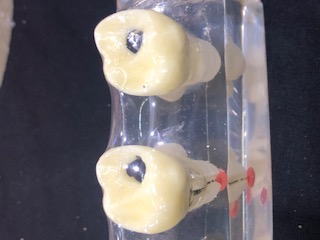
Networking online with dental companies, best dental professionals and local dentists
More and more businesses and companies are networking – and partnering online. We at DentalChat are looking to be networking online with dental companies, best dental professionals and local dentists.
How is Dental Chat networking with local dentists? DentalChat.com has one of the top dental platforms, that connects dentists to new patients and also, helps in providing dental information to people interested in dentistry. DentalChat was founded by a dentist over a decade ago, to help people with their dental care. Now, we have a great team of dedicated professionals that are expanding and improving that vision.
Networking online with us at DentalChat: If you are a dental company, ad media company, web tech company, social media blogger, dental professional or local dentist – now, is a great time to be networking online with us at DentalChat. Dental Chat online with great local dentists and dental practices. We are at DentalChat using smart technology and local dental professionals, to provide our users with great insight and knowledge about various Local Dentist Questions Online people have.
What dental subjects are covered on DentalChat? We cover most dental subjects and dental topics on DentalChat.com. We get asked many local dental questions about toothache or are asked many local dental questions about dental implants. Want more local dental implant information – here is a link to a local dental implants information blog on DentalChat.com. We also get asked many Local Emergency Dentist Questions online with us.
Excellent time and opportunity for local dental companies and local dentists to network – and to partner online with us @ DentalChat. We have many Local Dentist Blog articles and dentists can write local dental blogs online for us as well.
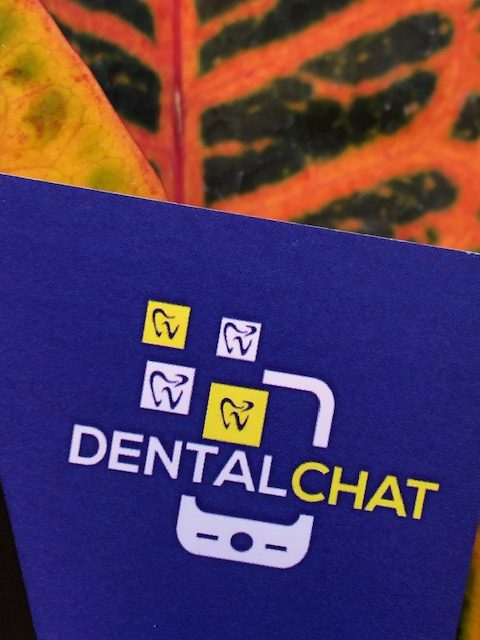
Best Local Dentist Directory Listings Online
Best Local Dentist Directory Listings Online
There are always people looking for great new dentists or an excellent Local Dentist to go to. Finding the best local dental practice can be challenging for many people. Whether it is because they have moved or they just have not wanted to go to a local dentist for a couple of years. We at Dental Chat are looking to list the best dental practices. Local Dentist Chatting Online, Best Local Dentist Blogging and Local Dental Practice Directory Listings Online with us at DentalChat.com.
DentalChat has been a leading dental platform looking to help people with their local dental care. We welcome networking with local dental companies.
To sign up online with us is very simple for local dentists. Best Local Dentist Directory Listings Online and Best Dentists Directory Listing Online with us @ DentalChat. Great time for dentists to be signing us at DentalChat. Here is the link for dental offices and dentists to sign up.
https://dentalchat.com/dentist-signup
Are you a person who has a local dentist question about wisdom tooth or a local dental question about dental implants? Here is the link to the Dental Question Chat Post page to have your local dentists questions answered.
Great time for local dentist bloggers to network with us.
Best dental machines of 2019
We are discussing various dental subjects and dental care topics on DentalChat. We welcome local dentists to share their dental knowledge with us, as many of our Dental Chat users are always looking for great dental information. In this local dentist blog, we will be discussing the Best Dental Machines of 2019 – more specifically, looking to have the list of Best Dental Machines by end of 2019.
We are at DentalChat.com looking at the listing the Best Dental Machines for dentists in 2019. If you have a dental product or dental machine that you feel should be part of this list – email us at service@dentalchat.com.
Dental imaging machine blog:
Right now there are some exciting new pan 3d x-ray machines and ceph x-ray machines that have come to the market, with some exciting new technologies. The software improvement of many of these dental imaging machines is constantly getting better. We like dentists to share their thoughts as to the best dental imaging machines in the market today.
We at DentalChat.com will be attending various dental events and dental conventions – to view and report back to our readers. Many patients like their dentist to have the best dental machines on the market.
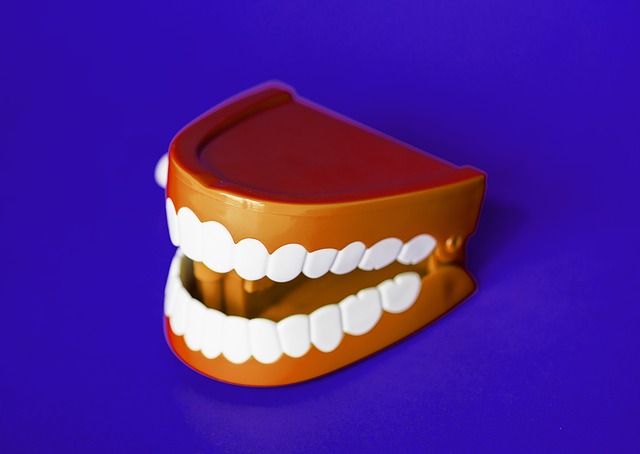
Online dentist communication with patients
New technology is making dentistry and health care more exciting & providing more tools to connect. In the last twenty years, technology has rapidly progressed. This technology is changing health care.
There are many people who have a dental question who do not want to go to the dental office. We are live dentist chatting online with people. Patients can local dentist chat with dentists – using modern technology.
Telemedicine industry is rapidly expanding and innovating. People are using various telemedicine sites – to communicate with doctors.
Excellent time for people to share their dental story — Share your dental story online with us. Here is the link to share your dental story on Dentalchat.
https://awsapi.dentalchat.com/my-story/
Local live dental chat and Best dental marketing online with us at DentalChat. We are communicating with people that have dental questions. Best teledentistry communication and local teledentist chat online with us. Great time to dental market with us.
We are at DentalChat.com looking to bring exciting new dental technology to improve dental care & increase people’s dental knowledge.
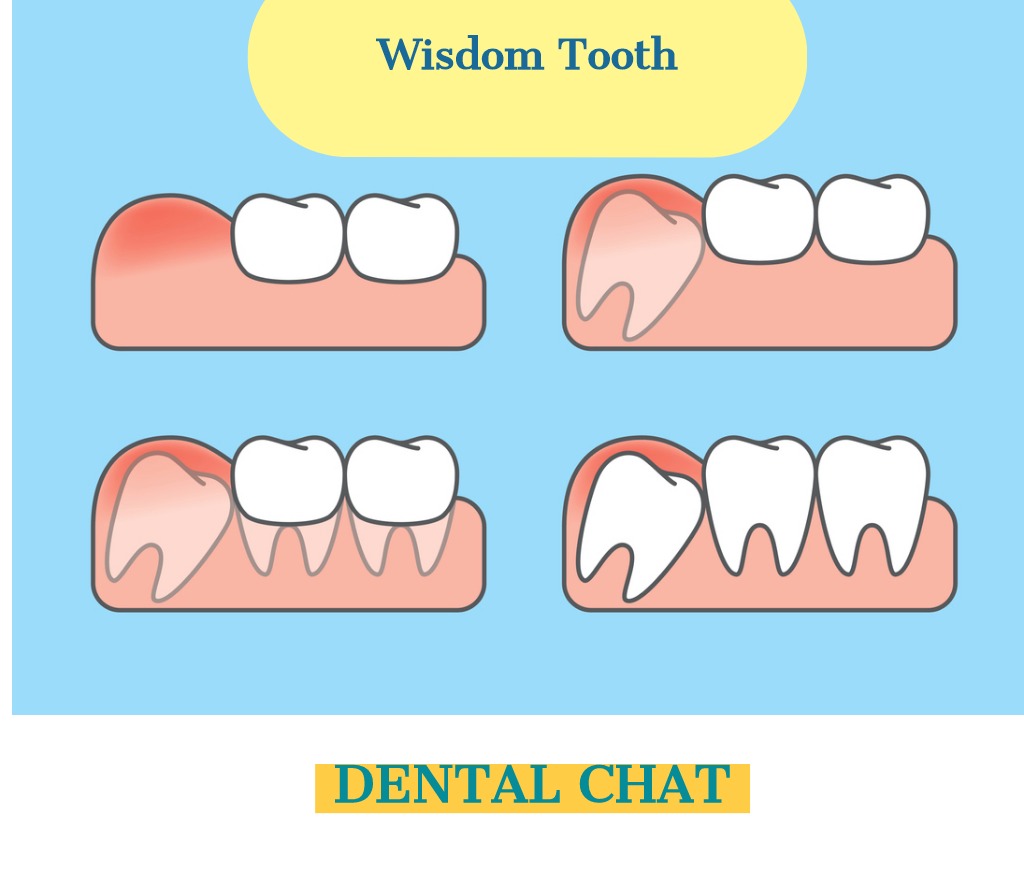
Do Wisdom Teeth Need To Be Removed? Here’s A Look
Growth brings along a lot of questions, including “Do wisdom teeth need to be removed?” The answer isn’t always as straightforward as it seems.
A normal adult mouth has 32 teeth, which (except for wisdom teeth) have erupted into place by about age 13. The human teeth function to mechanically break down items of food by cutting and crushing them in preparation for swallowing and digesting. Humans have four types of teeth: Incisors, canines, premolars, and molars. The incisors cut the food, the canines tear the food, and the molars and premolars crush the food.
The roots of teeth are embedded in the maxilla (upper jaw) or the mandible (lower jaw) and are covered by gums. Teeth are made of multiple tissues of varying density and hardness the third and final set of molars that most people get in their late teens or early twenties are called wisdom teeth.
Are They Worth Having?
These teeth can be a valuable asset to the mouth if they’re healthy and properly aligned. But more often, they are misaligned and require removal. There are certain myths related to wisdom teeth in Asia that is a person’s intelligence is completed once a person’s wisdom teeth are present. However, science has never proven such myths! A person whose wisdom tooth is coming to surface may not have any symptoms. On the other hand, they may have severe pain and difficulty eating and talking.
When wisdom teeth are misaligned, they may be positioned at various angles in the jaw. Poor alignment of wisdom teeth can crowd or damage adjacent teeth, the jawbone, or nerves. Wisdom teeth can also be impacted if they are enclosed within the soft tissue and/or the jawbone or only partially break through or erupt through the gum. Partial eruption of the wisdom teeth allows an opening for bacteria to enter around the tooth and cause an infection, which results in pain, swelling, jaw stiffness, or difficulty breathing.
Do Wisdom Teeth Need To Be Removed? Maybe Not?
Dental experts don’t always agree that wisdom teeth need to be removed. Some suggest they should be left unless they’re causing problems and pain. However, others suggest taking them out because they only present risks, not benefits. The decision should come from you and your dentist collaborative discussion. If they’re causing significant pain or damage to neighboring teeth, they need to go.
There are still many unanswered questions about wisdom teeth. This is one of the reasons why even the experts don’t always agree on what to do about them. Some dentists recommend removing wisdom teeth no matter what, even if they aren’t causing any problems. This perspective is based on the fact that wisdom teeth will usually end up causing problems in the long run.
Another argument is that we simply no longer need wisdom teeth to function. Wisdom teeth often do not come in or they only partially break through the gum. Up to 80% of young people in Europe have at least one wisdom tooth that hasn’t broken through. This is more common in the lower jaw than it is in the upper jaw. The reason is usually that there isn’t enough room in the jaw.
Time Brings Changes
Evolution has made adjustments to our jawbone size throughout human history. The jaws of modern human beings are smaller when compared to their ancestors. This presents a range of problems when wisdom teeth try to erupt into place. They often become blocked by other teeth and grow inside the jaw.
If the wisdom tooth erupts partially, it tends to create hard to reach area where bacteria can accumulate resulting in severe infections of the surrounding tissues and gums.
When wisdom teeth remain fully impacted under the gum line, they may form cyst or tumor that can damage the jawbone and teeth if left unaddressed. Hence most people undergo wisdom teeth removal to prevent themselves from the potential problems which may arise. Want to read more third molars information. Here is a Wisdom Teeth Blog and Third Molar Question Answered By Dentists Discussion online at DentalChat.
On DentalChat, we discuss a wide variety of dental topics. Here is a Dental Implants Information and Dental Implant Placement Blog with us.
- Local Emergency Dental Chat Online:
Great time to network and market online with us. Local Emergency Dental Chat Online and Search for Local Dentists online with us @ DentalChat.com. We welcome guest dental bloggers on DentalChat.
- Find a Dentist – Connect with Local Dentists in your area:
Are you looking to Find a Dentist in your area? At DentalChat, we can help with that! DentalChat.com connects you in real-time with dentists in your area.
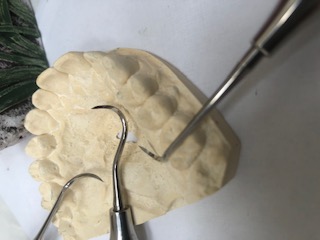
Dental Questions people ask online – Ask a Dentist Question?
We are at Dental Chat helping people get their dental questions answered online. What is the type of Dental Questions people ask online?
There are various types of dental problems people have – that they want to have dental answers to or want to get better information.
These dental questions would include many things – here are some dental subjects we get asked. It would be about dental topics such as tooth pain, cosmetic dental care and orthodontic questions.
Orthodontics Questions Chat:
Many people experience various braces and orthodontics treatment problems – this can include: My brace bracket fell off, what should I do? Or another common orthodontist question gets asked is, my gums are very inflamed after having braces for 6 months, etc. Other dental questions get asked about braces is – how long should orthodontics treatment take? If have a local orthodontist question or want more information about orthodontics, can use this orthodontics dental question chat blog link.
If there are dental questions want to ask or Ask a Dentist Question? If want to, people can post a dental question – can click this Dental Chat link https://dentalchat.com/patient/create-post
We welcome our users feedback and suggestions. Dental Chat is founded to help people with their dental care.
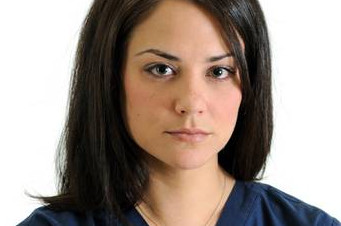
What Causes Yellow Teeth? Brighten Your Smile
Our teeth are a major indicator of our oral hygiene, and they can boost or deflate the self-esteem of even the most confident people. That’s why it’s imperative that we take care of our teeth and make sure they’re cleaned daily. Even with regular homecare, some people see their teeth discolor. That frustration inevitably begs the question, “What causes yellow teeth?”
That question is one of the most common inquiries we get from people who want to know just why their teeth are turning yellow, and how they can get whiter teeth and keep them that way. That question makes it pertinent to know the causes of yellow teeth and how to prevent or whiten discolored teeth.
How Did They Get This Way?
There are many reasons why teeth become yellow or stained. These reasons range from poor oral hygiene to genetics. Some of the reasons for yellow teeth include:
- Poor Oral Hygiene
Failing to brush at least once a day can cause yellow teeth as well as other dental complications. In addition, eating sugary food or foods with high acidity can cause plaque buildup and excessive damage to the enamel of the teeth. When this happens, food pigments can easily be absorbed into the dentin, the layer next to the enamel. These stains further weaken the enamel and cause visible yellow and brownish yellow stains on the teeth.
- Foods and Drinks
One factor responsible for what causes yellow teeth is the type of food or drinks you consume daily. For instance, A person who consumes a lot of tea and coffee without taking some time to brush daily will end up with stained teeth. Red wine, white wine, dark sodas, and energy drinks with synthetic flavors can also cause yellow teeth.
Certain types of food like curry spices, berries, tomatoes, tobacco leaves, vinegar, and others have been known to contain pigments that are capable of leaving a stain on the teeth.
- Smoking
Smoking doesn’t just cause damage to the lungs: It also causes yellow teeth. The nicotine contained in cigarettes generally leaves brownish stains on the teeth surface.
- Aging
It is normal for the teeth to start turning yellow as we age. This is because the enamel, the outer surface of the teeth, wears out gradually as it’s exposed to different acids in the food and drinks consumed. As the enamel gradually erodes, the layer beneath, dentin, begins to show. The dentin isn’t white like enamel, so it causes teeth to appear discolored.
- Genetics
Tooth coloration is partially influenced by genetics. Some people have naturally colored teeth as a result of the inherent traits of the genetics in their families. Apart from white, there are generally four other shades of color that appear naturally in teeth. These include reddish yellow, reddish brown, gray, and reddish gray. These colors also vary in depth across the light spectrum ranging from light to dark.
- Excess Fluoride
Excess fluoride is bad for the teeth. Fluoride is great for teeth, but when fluoride intake becomes excessive, it can lead to Fluorosis: Yellow and brownish yellow spots appearing on the teeth. Fluoride is present in toothpaste, fluoridated water, and some other prescription drugs. It’s important to consult a dentist to ensure that your fluoride intake is not excessive.
Other causes of yellow teeth include accidents, physical trauma, and antibiotics like Tetracycline. If taken during pregnancy or before the age of eight, this antibiotic can cause permanently stained teeth.
How To Prevent Yellow Teeth
In some cases, yellow discoloration can be prevented or reversed using simple and natural ingredients found at home, some of which include:
- Baking Soda and Hydrogen Peroxide
These two ingredients, when mixed to form a paste, can help reduce the yellow coloration of teeth. A 2012 study found these two ingredients and toothpaste containing them helpful in improving teeth whiteness. A DIY paste can easily be made at home by mixing two tablespoons of hydrogen peroxide with one tablespoon of baking soda. Any toothpaste that contains baking soda and hydrogen peroxide can also do the job.
- Apple Cider Vinegar
Apple cider vinegar, when used in small proportions, can help get stains off the teeth and improve teeth whiteness. But if it’s used too frequently, it can erode the enamel and damage the teeth surface. Therefore, it’s not meant for everyday use. Use sparingly, cautiously, and in small quantities.
- Vitamin C
The result of a 2007 study showed that periodontitis, caused by a buildup of bacteria on the teeth and in the gums, is worse in people with vitamin C deficiency. Periodontitis, or gum disease, is a contributing factor to discoloration of teeth as gums recede and expose the darker roots of the teeth. Vitamin C is just one small influencer of this inflammatory condition that afflicts 30% of the population. But it emphasizes that good nutrition contributes to all parts of general health, including oral wellness.
Apart from these remedies that can be used as preventive measures, other dental remedies abound which help to improve or restore teeth whiteness. Some of them include:
- Good Oral Hygiene
Almost everyone knows good homecare habits help to keep our teeth and mouth healthy and fresh. It’s good practice to brush at least twice daily. Brushing for two or three minutes each time and brushing with a quality electric brush regularly helps remove plaque and food. Flossing the teeth also helps to keep the mouth clean and free of food remnants that are stuck in the teeth and gum. In addition, teeth whitening toothpaste is also becoming more popular with people that need to know what causes yellow teeth. They won’t remove embedded stain, but they can help prevent more of it.
- Regular Dental Exam and Dental Prophy
To properly restore the natural color of your teeth, it’s important to consult a dentist. To top it off, a dental exam helps you discover the state of your oral health. One thing you can do is to see a dentist or dental hygienist regularly, at least every six months or twice a year. If your teeth are found unhealthy, a DENTAL PROPHY may be necessary. A Dental Prophy is a cleaning procedure that is done to remove large amounts of plaque buildup on the teeth and gums. And it helps to control periodontitis and gingivitis and prevent what causes yellow teeth. Furthermore, it’s often covered extremely well by dental insurance.
Just Do It!
In summary, many people what to know “What causes yellow teeth?” There are many factors, some of which can be prevented with good oral hygiene natural home remedies. Yellow teeth can also be treated professionally by dentists and then maintained with a host of recommended dental solutions. So, don’t forget to visit your dentist regularly and keep your oral health at the top of its game!
At DentalChat, we’ve got you covered. Connect online with a dentist in your area right now, in real-time!
Want to Learn More? Cosmetic Dentistry Blog: Here’s an interesting article on DentalChat about cosmetic dentistry and cosmetic dental procedures –
https://dentalchat.com/cosmetic-dentistry-procedures-and-cosmetic-dentist-chat
At DentalChat, we network with leading dental bloggers and professionals in the dental industry who may want to contribute daily blogs or articles to share with us. Online Dental Questions Blog, Local Dentist Chat Online and Ask Dentist a Dental Question with us. We innovate dentistry with real-time, online interaction between dental practices and patients. Dentalchat was founded by a dentist and includes dental professionals on our management team.
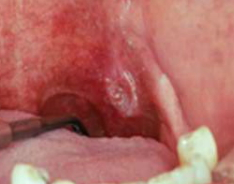
Most Common Oral Cancer Chatting – Mouth Cancer Chat
We get various dental topics people want for us to discuss online – here at DentalChat. One of the dental topics or areas of dentistry get asked about is Oral Cancer – which is commonly referred to as Mouth Cancer by some people.
Most Common Oral Cancer Chatting – Mouth Cancer Chat:
We will be discussing the most common Oral Cancer / Mouth Cancer in this Dental Blog – majority of oral cance are a form of squamous cell carcinomas.
By some statistics, approximately 90 percent are squamous cell carcinomas, originating in the tissues that are around or line the mouth and lips. Many times mouth cancer involves the tongue, that is a reason – many times your dentist checks your tongue when doing a oral exam.
Discussing oral cancer online:
At what age does oral cancer / mouth cancer usually be diagnosed? The majority of people with oral cancer happens between the ages of 50-70 years old – that is, oral cancer is usually diagnosed between the ages of 50-70.
Oral cancer should be checked for in youth and adults. For those who use smokeless tobacco – they should be regularly checked for oral cancer and should let their dentists know that they use smokeless tobacco.
Dentists and oral surgeons have some great dental xray machines, that can show in more detail – if have oral cancer. Also, they can take a biopsy. We will be discussing this topic in more depth @ DentalChat. At Dental Chat – we discuss various dental care topics. For instance, here is a article about root canal therapy and treatment
root canal treatment article https://dentalchat.com/local-root-canal-chat
We are networking with health care technology companies and online digital media companies – great time to network and market with us at DentalChat.com.
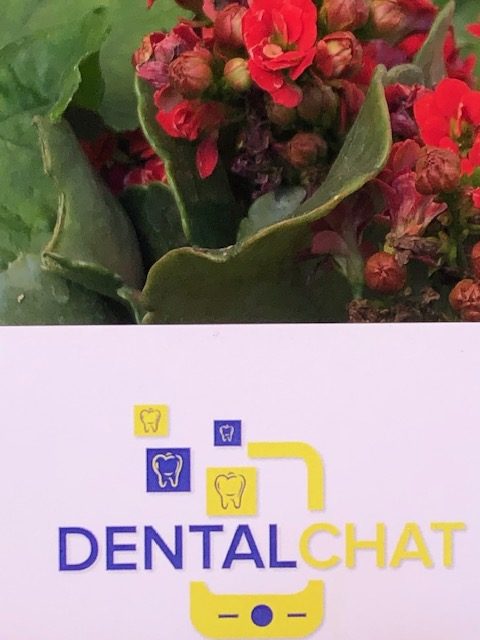
TMJ Chat and Online Bruxism / Clenching Teeth Blog
Many times people with TMJ are checked for bruxism as well. What do TMJ and Bruxism have in common? In this blog / article on DENTAL CHAT – we will be briefly discussing this dental topic.
One area that is very perplexing for people with it and for dentists that are looking to treat it – is TMJ Pain. It is not uncommon for a long suffering person with TMJ pain, to go to multiple dentists and dental offices – to try to find a way to best treat it.
TMJ Chat and Online Bruxism / Clenching Teeth Blog about various dental topics with us – we always appreciate your feedback and suggestions. Temporomandibular joint known as TMJ – TMJ pain or TMJ syndrome is a pain in the jaw / TM joint that may be due from various factors. It is at times vary hard to figure out and even harder to find the right treatment. Many times medications and relaxation is recommended – and some even suggest forms of surgery, though this possibly may or may not help. TMJ is where the upper and lower jaw connect / right around the front of the ear. Basically, the TMJ are the 2 joints that are connecting the jaw to the skull. Lot of facial muscles are connected around there. Some people with TMJ feel a clicking in the tmj when opening wide or chewing. It can be very painful and annoying for people with this condition. We will discuss further in coming articles here on DentalChat.
Bruxism or clenching of the teeth – usually when sleeping can greatly damage your teeth. Many times will see the teeth are kind of flat in the back, with people that are grinders or who have this condition. Generally, people with high level of stress and tension, can be doing this grinding or clenching of teeth called bruxism. Because people are over working their jaw and mouth, and clenching their teeth – some suggest that people with severe bruxism – that they may be affecting the TMJ & causing it to have problems. People with bruxism are usually recommended a form of what is called a night guard, to wear while they sleep >> mostly to try to protect the teeth.
Both bruxism and tmj pain are areas, that much research is still being done. We will be discussing this further in coming dental blogs and dental articles here on Dentalchat – we welcome your feedback and suggestions.
